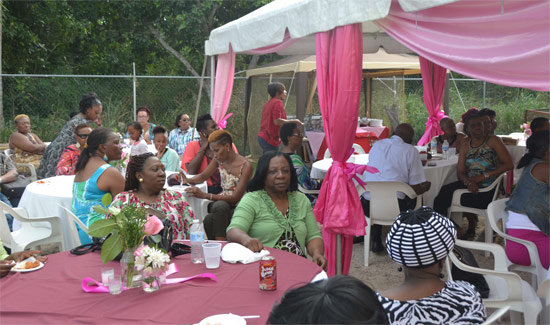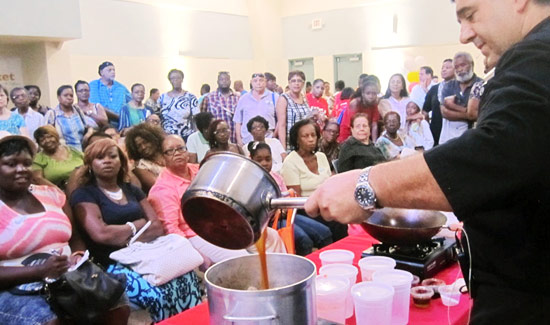The Bahamas has been put on high alert after an outbreak of cholera was discovered in Haiti.
Minister of Health Dr. Hubert Minnis held an emergency press conference yesterday and told reporters that the situation is being closely monitored by Bahamian authorities. Thus far, there have been no reported cases in The Bahamas.
Minnis said air and maritime ports of entry are also being screened where there is movement to and from Haiti and a travel advisory has been issued by government.
“International travelers are advised that if you have traveled to Haiti or the Dominican Republic and you are experiencing stomach aches or diarrhea, contact a health center immediately,” the Health Minister said.
“The national emergency agency, NEMA, together with our international partners, in particular the Pan American Health Organization and the Pan American Sanitary Bureau, have developed response plans in the even that there is importation of cholera into The Bahamas.
“Health care providers and health care facilities remain on the alert to identify any suspected cases of cholera and will promptly follow the plan to prevent spread of the disease.”
Liaison Officer between the Royal Bahamas Defence Force (RBDF) and the Bahamas National Emergency Management Agency, Lieutenant Whitfield Neely, said that procedures for boarding sloops and handling Haitian migrants have been changed in order to keep officers protected from exposure to the illness, while apprehension exercises are in progress.
The officers are now required to wear extra protective coverings such as gloves and masks.
Cholera causes watery diarrhea, stomach cramps and vomiting, which can lead to dehydration and eventually death.
While cholera has a relatively low mortality of one percent, mortality rates in Haiti have been as high as nine per cent, according to international health organisations. There have over 250 deaths so far. Haiti suffered a devastating earthquake in January that left thousands of people without clean supplies of water.
Minnis said The Bahamas is equipped to handle an outbreak should it occur.
“The Ministry of Health currently has medicines and supplies in stock to cover initial treatment needs,” he said. “Educational materials are being developed to promote good hygiene and safe food handling practices. These messages will be in English and in Creole.”
He advised the public to use clean water and maintain good hygiene practices when preparing food.



